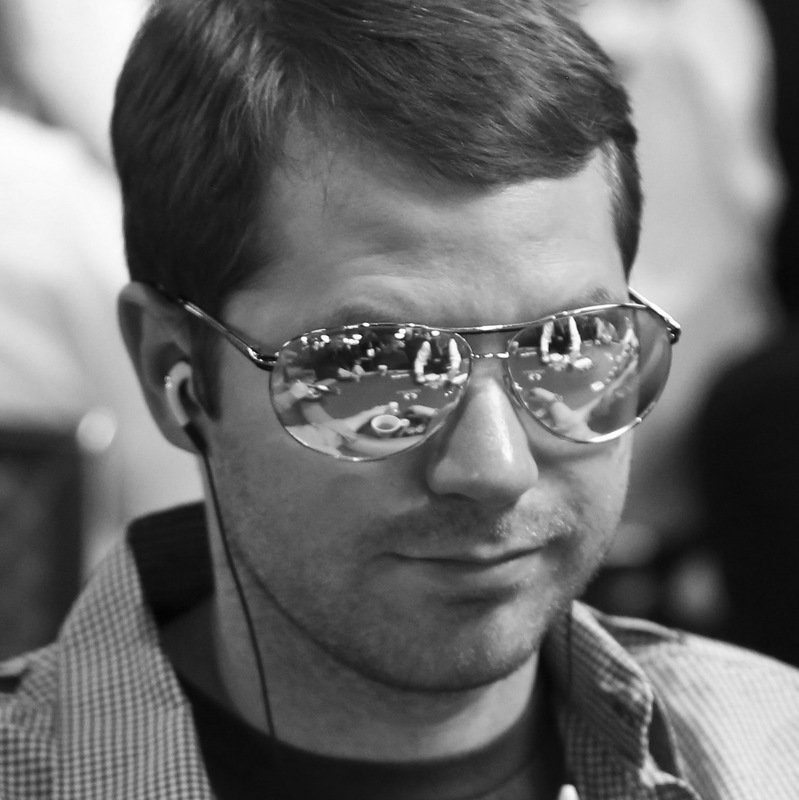






Going For Value On The Riverby Jonathan Little | Published: Sep 26, 2018 |
|
|
I recently played a hand from a $3,500 buy-in World Poker Tour event that illustrates a few key concepts you must master if you want to succeed at no-limit hold’em, such as adjusting to your opponent’s tendencies and not being afraid to go for value on the river.
Early in day 1 with blinds at 75-150, everyone folded to me in the cutoff and I raised to 400 out of my 30,000 effective stack with K Q
Q . This raise is perfectly fine and quite standard. There really are no other options besides raising a bit larger or smaller.
. This raise is perfectly fine and quite standard. There really are no other options besides raising a bit larger or smaller.
Only a splashy recreational player called from the small blind. The flop came A Q
Q 9
9 . The opponent checked.
. The opponent checked.
At this point, the two reasonable options are to check or bet small, about 30 percent pot. Given my opponent was quite splashy, meaning he calls with too many hands both preflop and post-flop, I tend to prefer continuation betting. There is simply too much value to be had from this type of player. Most of the time though, against decent opponents, you should strongly consider checking behind with your weak aces and middle pairs, as well as some junk. That way, you can easily call turn and river bets with the aces, call turn bets with the queens, and fold to a turn bet with the junk. This strategy will result in you being decently balanced and difficult to exploit.
I bet 400 into the 950 pot and the opponent called. The turn was the 4 . The opponent checked.
. The opponent checked.
As on the flop, checking and betting small are reasonable plays. While I would check essentially every time against a decent player, there may still be some value to extract from a splashy opponent who will call a small turn bet with any pair or draw. However, checking behind may induce bluffs, allowing me to easily call most river bets.
I checked behind. The river was the K . The opponent bet 400 into the 1,750 pot.
. The opponent bet 400 into the 1,750 pot.
A generic tendency of recreational players is to make small river bets with marginal made hands when the turn checks through, hoping to extract value while keeping the pot manageable. So, how does my middle two-pair stand against marginal value hands? Most likely, the opponent has a weak ace. Knowing that, I should certainly raise for value. If my opponent surprises me and re-raises, I can easily fold, assuming my read must have been incorrect.
Be sure to consider how much the opponent will be willing to call with a weak ace. If he is the type of player who will only call a tiny raise, making it 1,100 may be ideal. If he is an extreme calling station, you can make it large, perhaps 3,000.
Not knowing anything about my opponent’s river tendencies, I elected to raise to 2,000. The opponent thought for about three minutes before calling and then mucking in disgust after I turned my hand up. Apparently, he had an ace and was angry that I “got lucky” on him. In reality, I invested a small amount preflop with a hand that is certainly ahead against three random hands, bet a little on the flop when I had a sizable range advantage and then put lots of chips in on the river as a clear favorite. Sometimes poker really is that easy.
So, what could my opponent have done differently?
Really, not much, besides fold to the river raise.
He should call with his decent aces preflop (If he had a weak ace, he should three-bet or fold). He should check-call the flop due to my range advantage, check the turn, and should then consider value betting the river. If he had A-J or A-10, value betting is perfectly reasonable, although he should have bet larger. If he had a weak ace, both betting and checking are fine, although once raised, he should tend to fold. It is always important to assess your range to see if you have many better hands in it that can call the raise. In this spot, the opponent should have many better hands to bet the river (although perhaps not for his tiny sizing). Given he should have many better hands, weak aces should likely fold to my river aggression. As a general rule, when you get raised on the river, you need a strong hand to call. Top pair with a weak kicker will not cut it. ♠
 Jonathan Little is a two-time WPT champion with more than $6 million in tournament winnings. Each week, he posts an educational blog and podcast at JonathanLittlePoker.com, where you can get a FREE poker training video that details five things you must master if you want to win at tournament poker. You can also sign up for his FREE Excelling at No Limit Hold’em webinars at HoldemBook.com/signup.
Jonathan Little is a two-time WPT champion with more than $6 million in tournament winnings. Each week, he posts an educational blog and podcast at JonathanLittlePoker.com, where you can get a FREE poker training video that details five things you must master if you want to win at tournament poker. You can also sign up for his FREE Excelling at No Limit Hold’em webinars at HoldemBook.com/signup.
Features
The Inside Straight
Strategies & Analysis